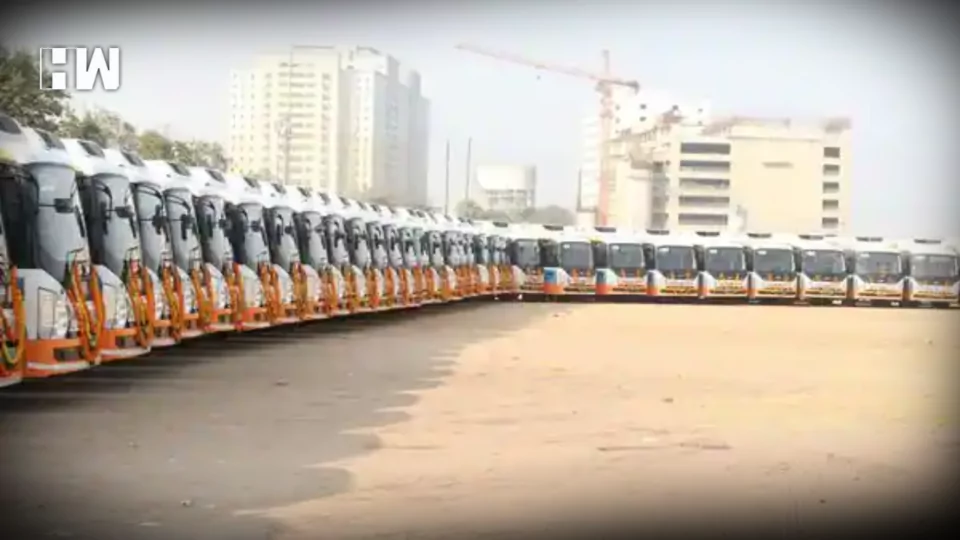India’s largest commercial vehicle manufacturer Tata Motors said Delhi Transport Corporation (DTC) has signed a definitive agreement with its fully-owned subsidiary-TML CV Mobility Solutions
New Delhi: India’s largest commercial vehicle manufacturer Tata Motors said Delhi Transport Corporation (DTC) has signed a definitive agreement with its fully-owned subsidiary — TML CV Mobility Solutions — for the operation of 1,500 electric buses in New Delhi.
According to the agreement, TML CV Mobility Solutions will supply, operate and maintain 1,500 units of 12-metre low-floor air-conditioned electric buses for a period of 12 years. Tata Starbus EV is an indigenously developed vehicle with superior design and the best features for a sustainable and comfortable commute, according to a statement from Tata Motors.
In the statement of Tata Motors released recently, Shilpa Shinde, IAS, Managing Director, Delhi Transport Corporation, said, “We are pleased to have signed an agreement for the largest order of 1,500 electric buses in Delhi. This is a significant step towards embracing electric mobility in the capital city. The induction of zero-emission, noise-free buses will greatly help in improving the city’s air quality…”
Also, Read: Cybersecurity Could Emerge As The Biggest Challenge In 2023, Prompting Remodeling Of Their Data Security Systems
Asim Kumar Mukhopadhyay, Chairman, TML CV Mobility Solutions, said, “It is indeed a historic occasion for us as we sign a definitive agreement for the country’s largest electric bus order. Our relationship with DTC, which stands strong for over a decade, is based on the foundation of mutual trust and cooperation and this order will further strengthen it…”
The company said Tata Motors’ latest research and development facilities have steadily worked to engineer new mobility solutions powered by alternate fuel technology, including battery-electric, hybrid, compressed natural gas (CNG), liquefied natural gas (LNG) and hydrogen fuel cell technology.
Till date, Tata Motors has supplied more than 730 electric buses across multiple cities in India, which have cumulatively clocked more than 55 million km, with an uptime of over 95 per cent.
(Except for the headline, this story has not been edited by HW News staff and is published from a syndicated feed.)
As an independent media platform, we do not take advertisements from governments and corporate houses. It is you, our readers, who have supported us on our journey to do honest and unbiased journalism. Please contribute, so that we can continue to do the same in future.

